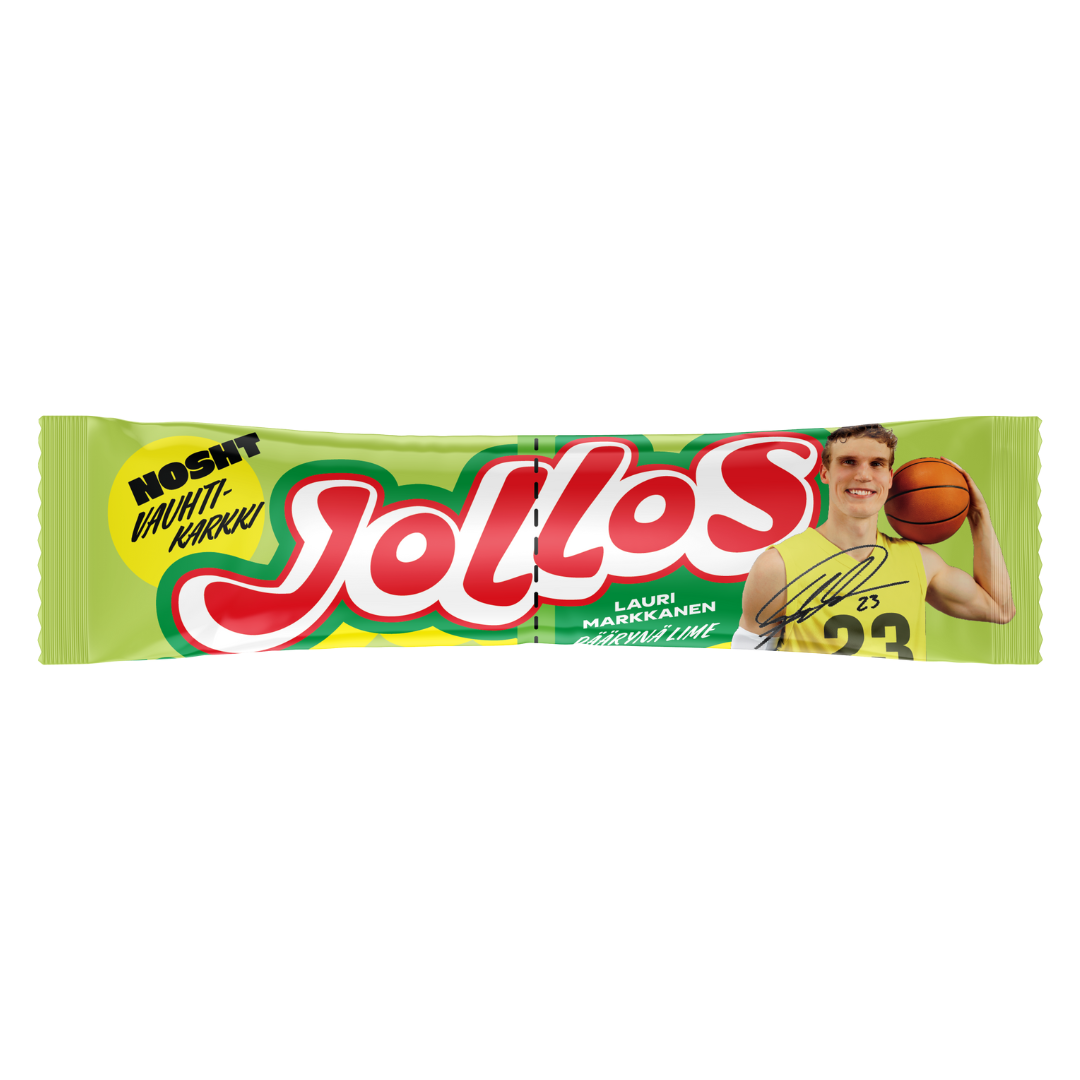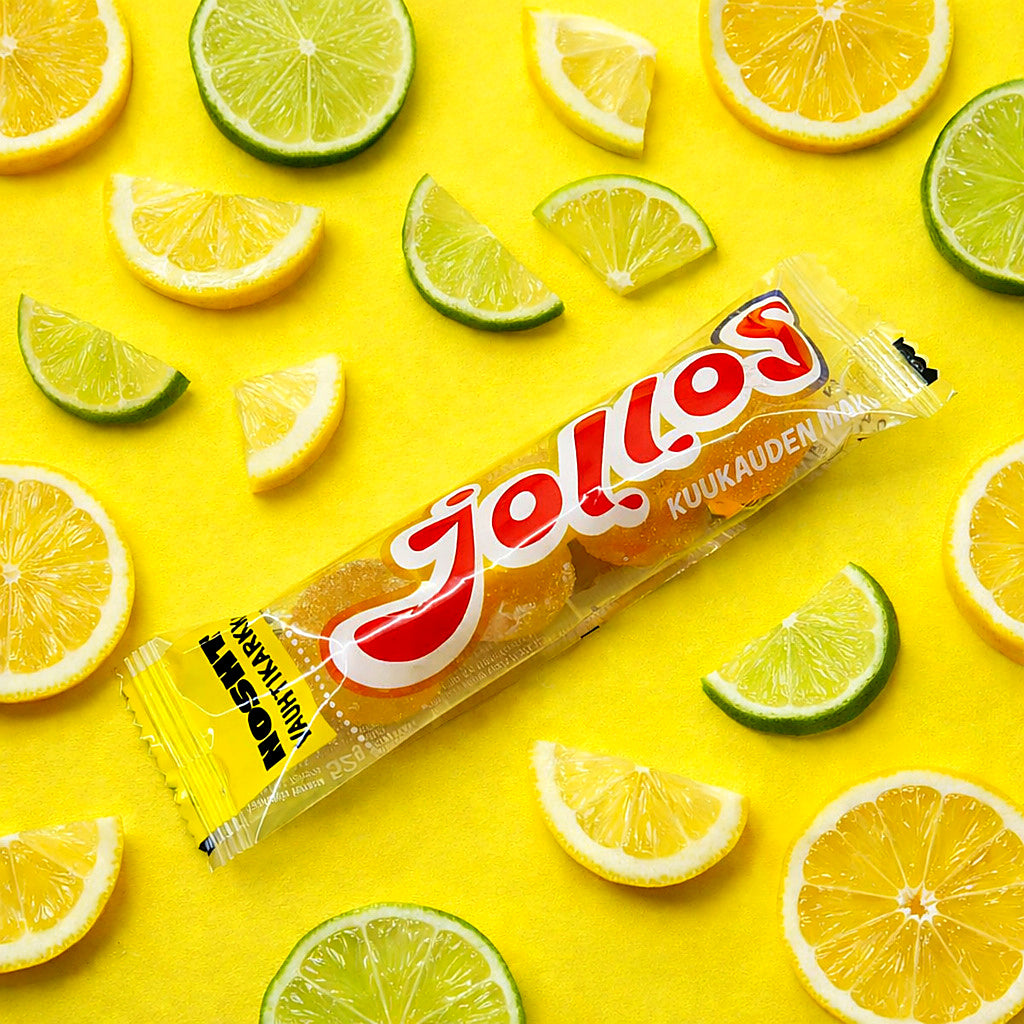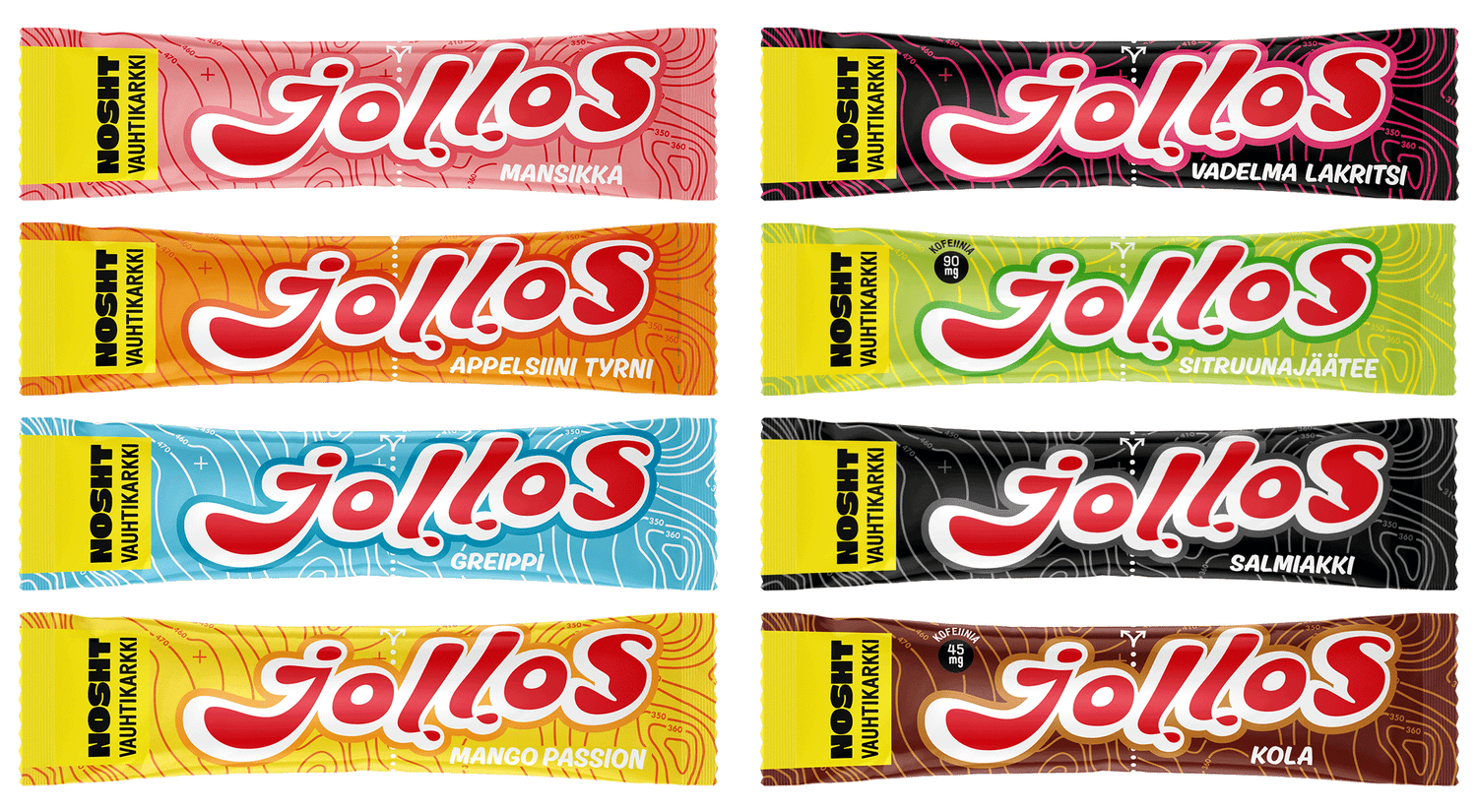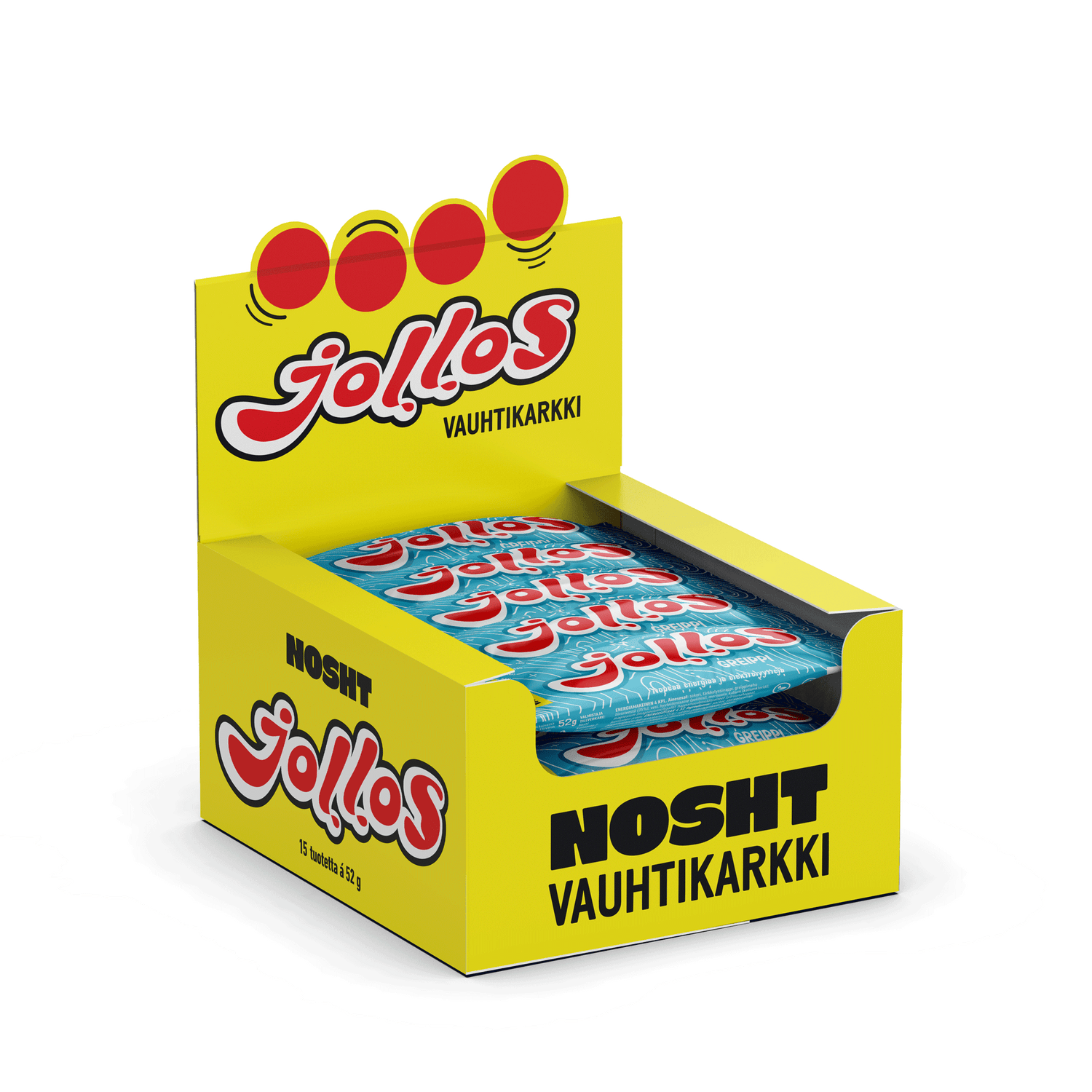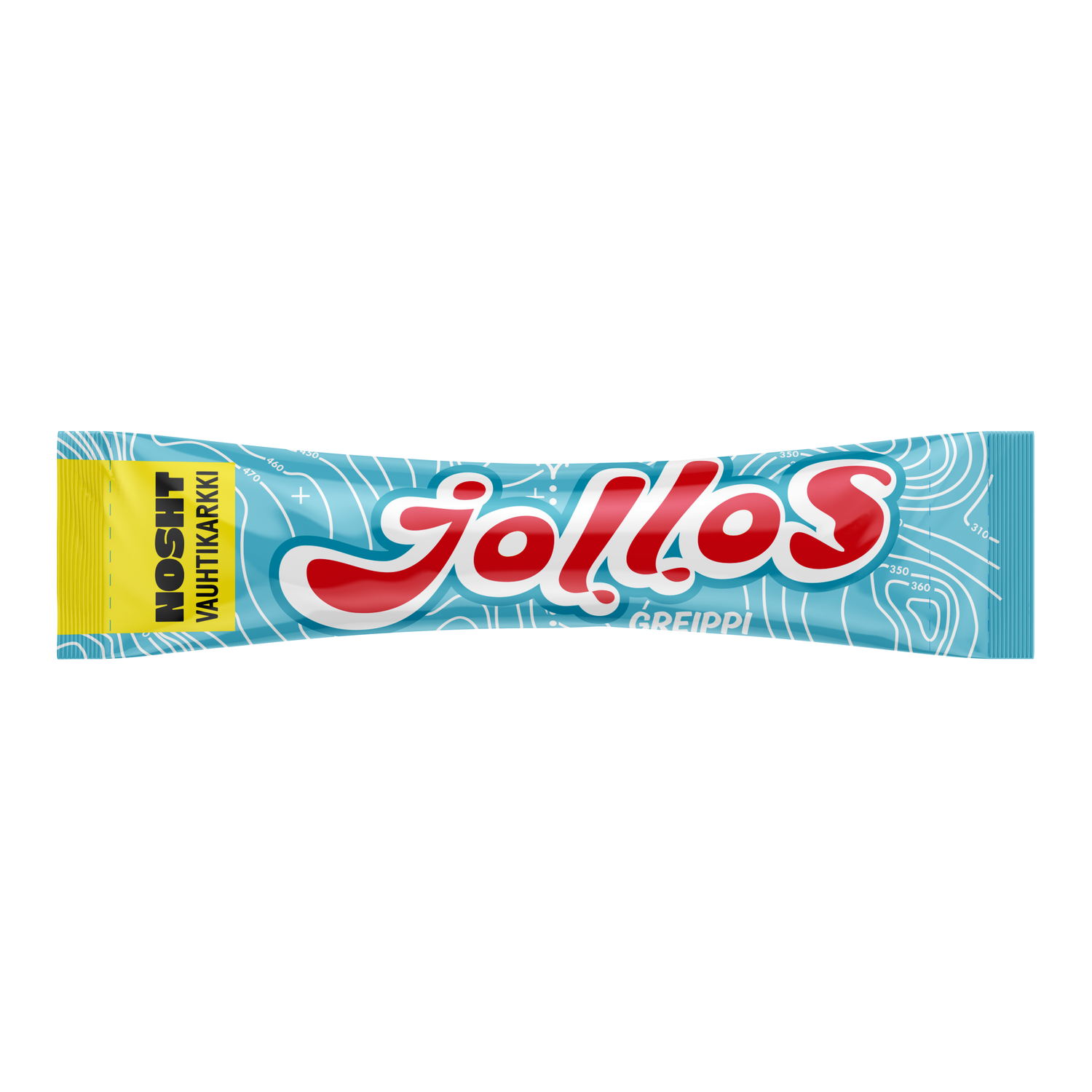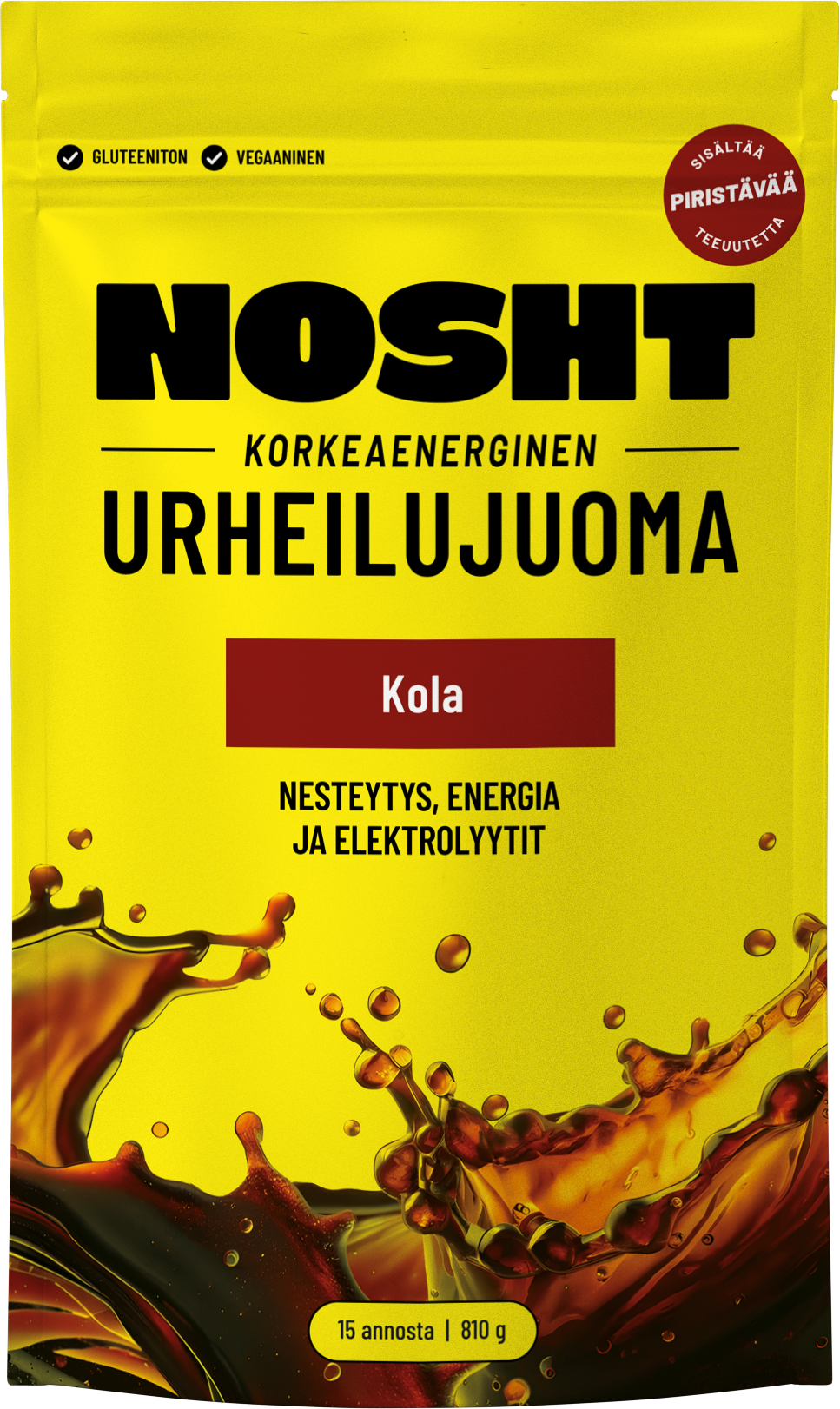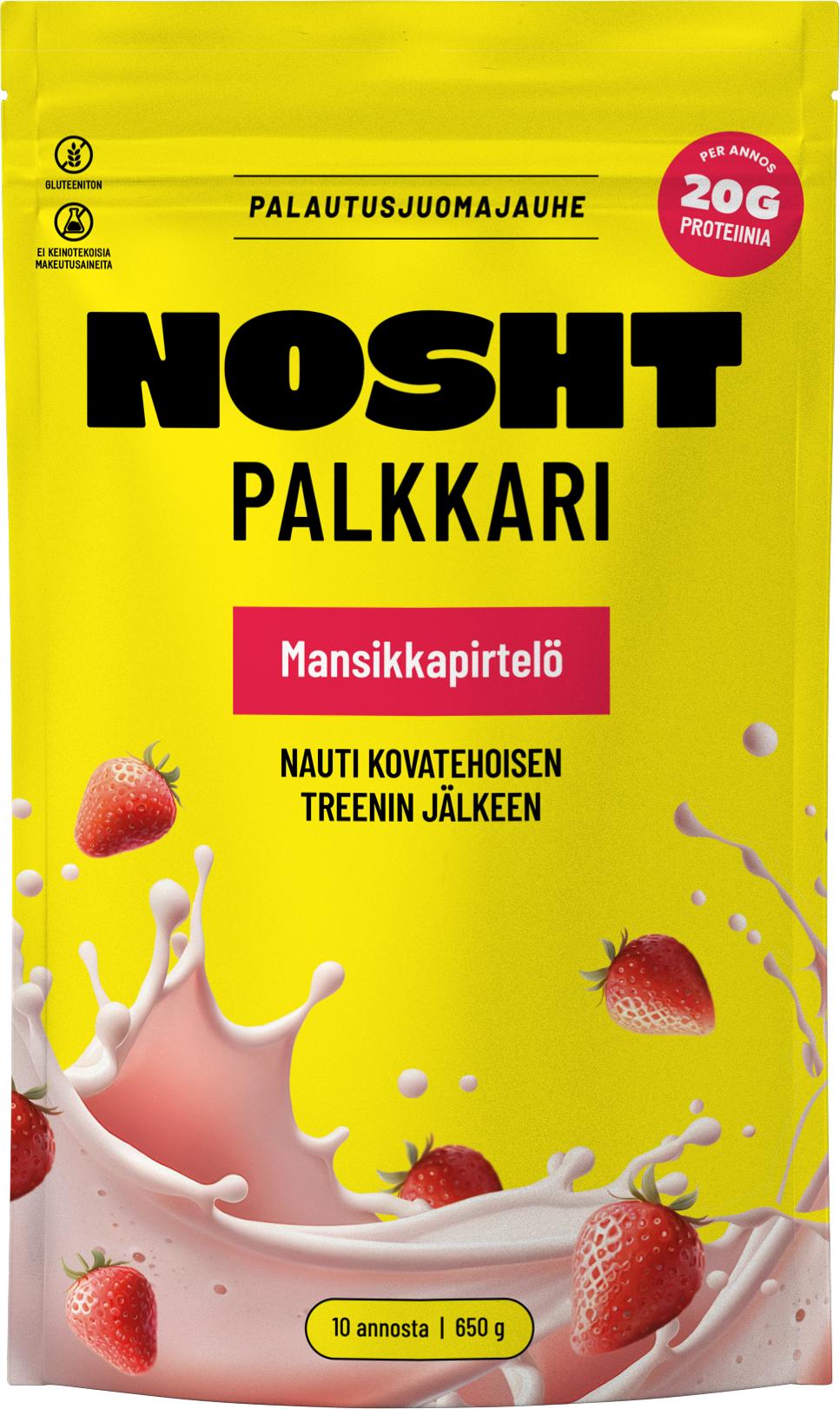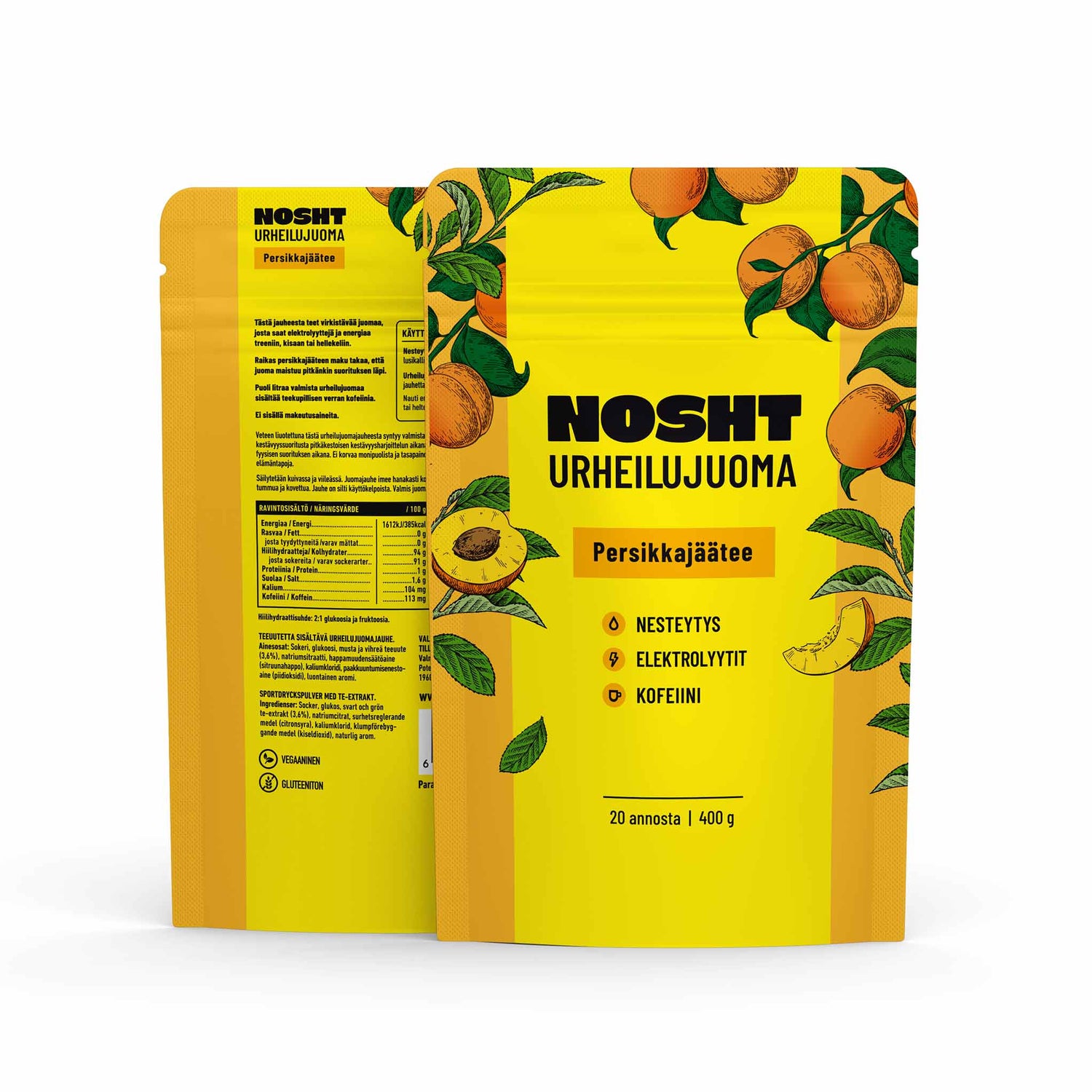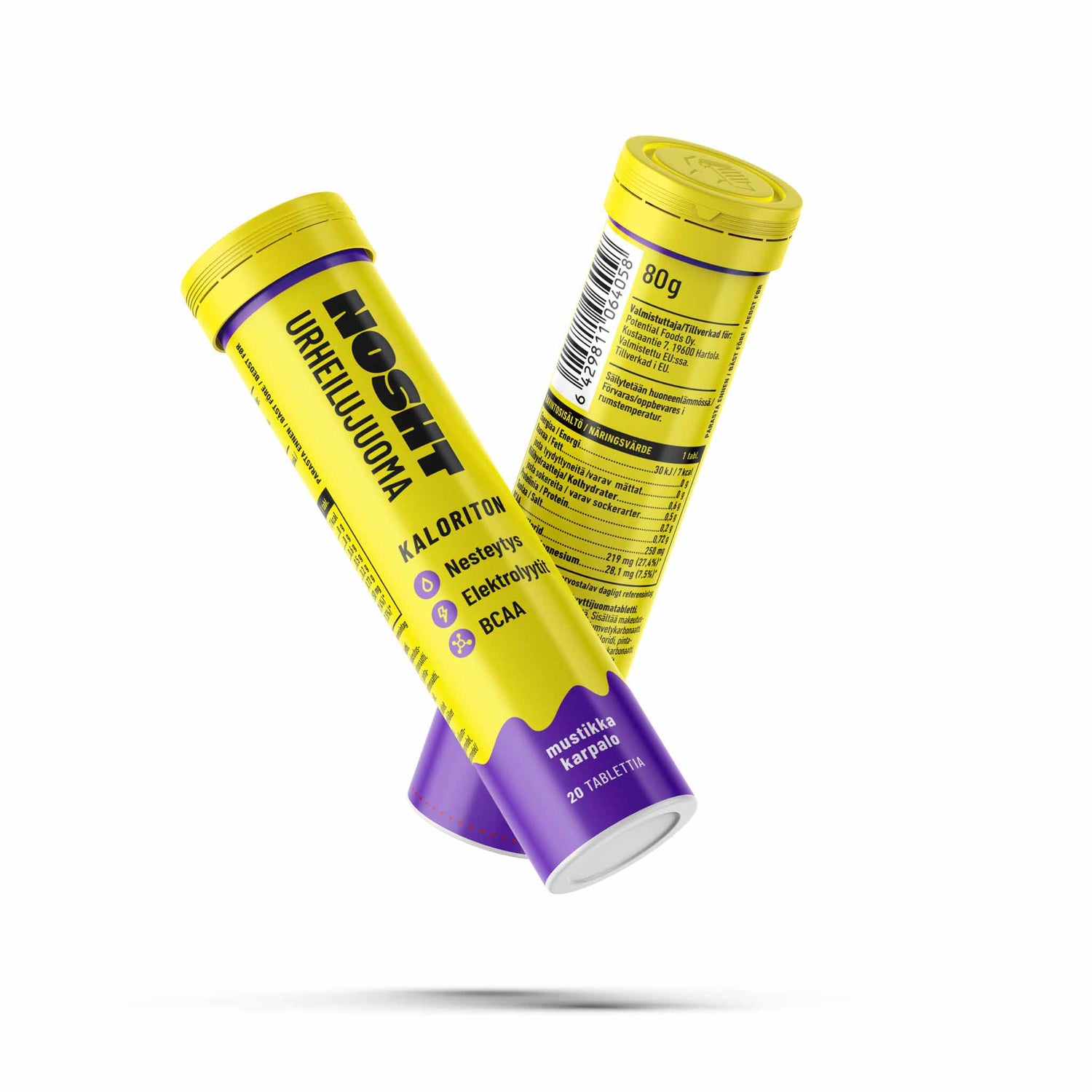When should you have a sports drink instead of water? What’s the difference between an isotonic and hypotonic sports drink? Here’s what you need to know when you’re choosing the best sports drink for running, cycling and other endurance sports.
In the course of everyday life, you lose about two litres of water per day simply by breathing, sweating, going to the bathroom and maintaining a healthy digestive system. But you can lose as much as two litres per hour during exercise, depending on the nature of the activity and the conditions you’re in.
That’s why it’s important to pay attention to hydration during running, cycling and other endurance sports. Choosing the right kind of energy drink can help you fight dehydration and make the most out of your training or racing.
Dehydration decreases athletic performance, a sports drink helps to replenish
Dehydration is an athlete’s enemy. A mere two per cent loss in body weight as a result of dehydration can decrease athletic performance significantly.
When you lose fluids, your core body temperature rises, as does your heart rate. The glycogen stored in the muscles will be used more rapidly, leading to greatly diminished energy reserves. Lactic acid levels will increase, leading to fatigue and cramping. In addition, dehydration is also one of the most common causes of exercise-related gut issues.
At the first feeling of thirst, the body is usually already two per cent dehydrated. It might be that the sensation of thirst is the only clear sign you notice of this minor dehydration.
If you don't take care of your fluid balance quickly, you’ll soon be likely to experience headaches, tiredness and loss of focus. These problems alone inhibit athletic performance, and it only gets worse the more dehydrated you become.
You don’t only lose water when you sweat. Many electrolytes are also lost, the most important ones being sodium, potassium, and chloride. To maintain adequate hydration levels during exercise, you need to replace not only the fluid you’ve lost but the electrolytes as well.
If you sweat heavily and lose a lot of sodium, replenishing by only water without any sodium may end up in a very dangerous state called hyponatremia. The symptoms of hyponatremia include drowsiness, nausea and muscle weakness, and in very severe cases, even seizures and coma.
This is why it is wise to pay attention to hydration during training and choose a sports drink that suits your needs.

What is a hypotonic sports drink and how does it differ from an isotonic sports drink?
Sports drinks are often described either as hypotonic or isotonic. The “tonicity” refers to the relative concentration of sugars, salts, amino acids and other big molecules in the drink compared to the concentration in your blood. The key difference between hypotonic and isotonic drinks is how well the fluid will be absorbed.
A hypotonic drink is lighter than blood, which allows the body to absorb the fluid more rapidly. It also exits the gut quickly and is efficiently absorbed by the small intestine. These benefits make hypotonic drinks the best solution for staying well-hydrated.
An isotonic drink has an electrolyte and carbohydrate concentration similar to our blood. While there are more salts and energy available in an isotonic drink, the body’s ability to absorb the drink suffers because of the concentration. For this reason, isotonic drinks, which are the most common type of sports drinks in the market, are good for getting a bit of energy and some water into the body but not for maximal hydration.
There are also hypertonic solutions where the concentration is thicker than blood, such as energy gels. Hypertonic solutions are a great source of energy but they don’t help with hydration. If you consume hypertonic solutions while you are in a dehydrated state, it is very likely that you will suffer from gut issues.
It’s crucial to know whether your sports drink is hypotonic or isotonic. Unlike isotonic drinks, hypotonic drinks are not considered a source of energy. They focus purely on hydration.
Sodium, carbohydrates, and amino acids in sports drinks
Another thing to keep in mind while choosing the right sports drink is to take a look at the list of ingredients.
As discussed earlier, effective fluid replacement requires sodium. Recent research has shown that relatively high sodium content in a sports drink has beneficial effects on the body’s ability to maintain positive fluid balance and its ability to restore hydration levels for several hours after loss of fluids caused by exercise.
In order to be really effective, a fluid replacement drink needs much more sodium than the average sports drink contains. This results in a dilemma: if the taste is too salty, you tend to drink less – which is counter to the goal of remaining hydrated.
Carbohydrates are also an important component in fluid-replacement beverages in part because they help with water absorption. The cotransport of glucose and sodium help to absorb the water in the gut.
Another thing to look for is amino acids. They are organic compounds that are often dubbed as the building blocks of proteins and play many important roles in the body. Small amounts of amino acids may improve water and sodium absorption from the small intestine and also fluid retention in the body.

Nosht sports drink optimises hydration without sacrificing flavour
Typical sports drinks try to achieve two competing goals at once: keeping you hydrated while providing you with energy. This approach is counterproductive: drinks that are high in carbohydrates actually make it harder for your body to absorb liquids quickly and efficiently. That’s why we limit our formula to achieving just one goal – optimising hydration.
Our sports drink, Nosht Endurance Drink Mix combines the science behind oral rehydration solutions – used to treat dehydration – with the science behind sports drinks and sports medicine. Nosht Endurance Drink Mix combines simple carbohydrates and amino acids to maximise water absorption and enhance hydration. Also, our mix tastes a bit saltier than your average sports drink, because it contains an appropriate amount of sodium for rehydration - but without sacrificing great flavour.
There is more to it than this, of course: the formula's main aim is to maintain hydration during exercise without causing any gastrointestinal (GI) stress.
Our Endurance Drive Mix delivers:
- Optimal electrolyte content for hydration
- Optimal carbohydrates and amino acids to facilitate water absorption
- Few carbohydrates, minimizing stomach discomfort
- No GI-irritating substances
- A fresh, natural and mild taste
Shop our sports drink here
References:
Sawka M, Cheuvront S, Kenefick R. Hypohydration and human performance: Impact of environment and physiological mechanisms. Sports Med 2015; 45(1):S51-60.
Baker LB, Jeukendrup AE. Optimal composition of fluid-replacement beverages. Compr Physiol 2014; 4(2):575-620.


